Your Cart is Empty
Is Organic Wool Sustainable and Ethical? 15 Pros and Cons
What do you think of when you imagine organic wool clothing? A soft, comfy jumper? Perhaps a natural fabric that keeps you warm?
There is a reason wool clothing has been used throughout human history. This natural fibre has a range of benefits that make it ideal for anything from jumpers and scarves to comfy bedding or pillows.
Organic wool has no added chemicals, no microplastics or allergens. This makes it perfect for sensitive skin. There are many other advantages to wool that you might not think of.
Here we are going to cover these benefits, answering what are the pros and cons of organic wool clothing and why it is eco friendly.

What is organic wool?
Organic wool is a 100% natural fibre. It comes from farms which prioritise animal welfare and minimising their environmental impact.
All woollen products are renewable and biodegradable. There are many types of wool, but a certified ‘organic wool’ means the wool has been produced without any chemicals.
Chemicals are commonly used on farms to help the farmer increase yields. For example, vets often use medicines such as lice and flea preventions which can contain some harmful additives. Crops may also be sprayed with toxic pesticides or fertilizers, impacting the local environment.
Organic farmers have to use more natural alternatives. Genetic Engineering and synthetic hormones are also prohibited. Due to the wide use of chemicals and medicines in farming, organic wool is not widely produced which makes supplies rare.
So this all sounds pretty sustainable, right?
Is organic wool environmentally friendly?
Organic wool is one of the most environmentally friendly fabrics. It is more ethical than regular wool as it’s consciously made and cruelty free. This means no bad practices such as mulesing (removing strips of skin around the back of the sheep to prevent parasites).
As well as being ethical, organic wool is 100% biodegradable, contains no microplastics or chemicals, and is durable. Unlike more man-made fabrics, it doesn’t require frequent washing, which saves energy and water over the long run.
What’s more, wool can be completely recycled into new fabric once its useful life is over. Recycled wool has been rated as Class A in the Made-By environmental benchmark for fibres. Therefore it’s safe to say wool is a very environmentally friendly fabric.
Before buying wool from any random brand, make sure you check the transparency of their sourcing practices. You need to see that the items are genuine and don’t involve any inhumane practices.
You’ll find everything you need on sustainable clothing from sites like www.projectcece.co.uk or Shop Like You Give A Damn. Whilst Cariki don’t sell wool items, you can view our range of sustainable fabrics here.
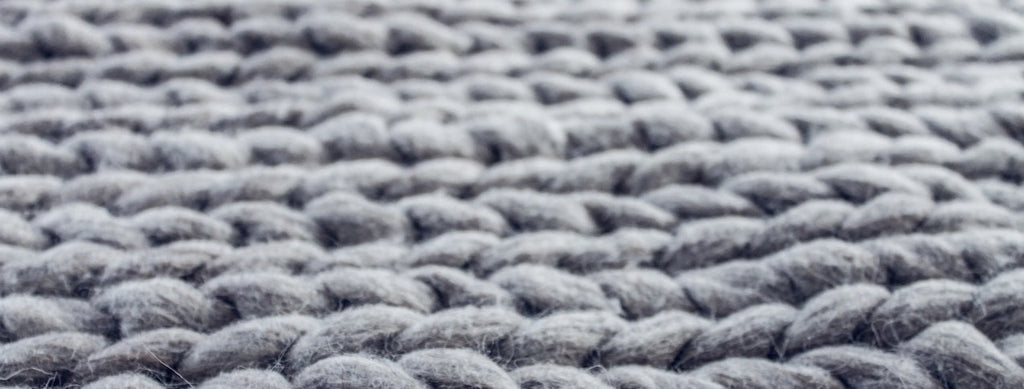
Is organic wool itchy?
It’s a common myth that organic wool is itchy, rough or scratchy. This simply isn’t true. When wool is combed into very fine fibres, a soft and comfortable fabric is produced. This makes it perfect for everything from organic wool clothes to soft comfy bed sheets.
There are many types of wool used for clothing. Sadly a lot of manufacturers like to cut costs and use cheap wool with thicker fibres. This is why wool has the image of your grandma’s itchy knitted jumper.
If you are looking for the best non itchy wool, merino wool is typically seen as best. Unlike other wool fibers, Merino wool has a long thin fibre. This means it feels incredibly soft on your skin and doesn’t itch at all. If you have sensitive skin, Merino wool or other organic wools will be best suited for you. New Zealand and Australia are often regarded as leaders in Merino wool.
Looking for other soft fibres? Read about the benefits of Tencel here, a super soft and eco friendly fabric.
So the next question,Why is organic wool better?
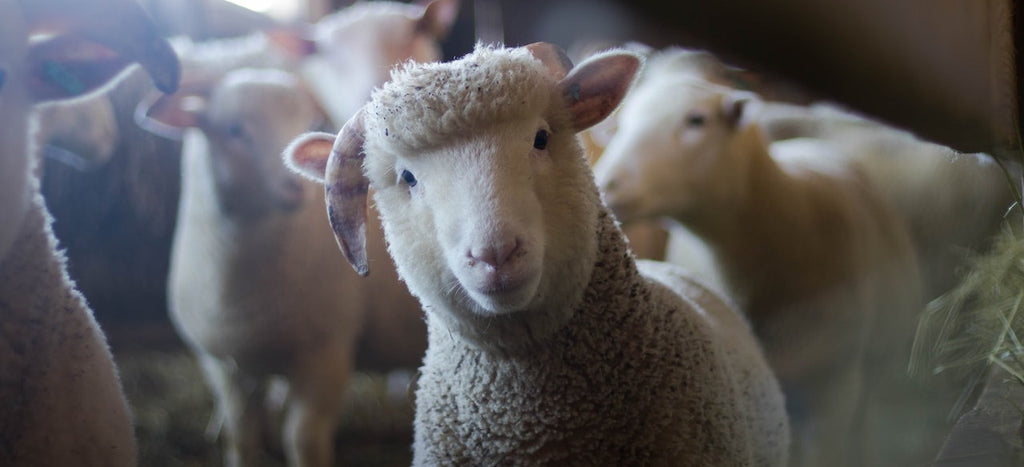
What are the advantages of wool?
1. Organic wool is 100% natural
One of the main advantages of organic wool is it is 100% natural. This means no man made synthetic fibres, no microplastics, and no overseas factories polluting local habitats. The result, a reduced carbon footprint.
2. A smaller carbon footprint
As wool is one of the best natural fibers, it has a lower energy consumption than most man made fabrics. This means its carbon footprint is also smaller.
The carbon footprint of wool is lower than common textile fibres including nylon, acrylic, polyester, viscose and conventional cotton. Hemp is the only fabric with a lower footprint. So for those wondering what’s better, wool or cotton? As wool’s carbon footprint is lower, this is certainly one reason why wool is better.
3. Organic wool is ethical
One reason certified organic wool is better is because it is more ethical. Organic wool farmers must follow strict organic standards to maintain their certified status. This means cruel practices are forbidden and stress is minimised for the animals.
Feed provided for animals must be organic, and no harsh chemicals are sprayed on the land which they graze. This makes it safer for the animal as well as the local ecosystem. What’s more, there are fewer sheep per acre, meaning animals can enjoy their free range lifestyle.
4. Non-toxic manufacturing
Organic wool ensures that no chemicals are used or produced in the manufacturing process or downstream in the wool industry. This makes them safer to wear as well as more eco friendly.
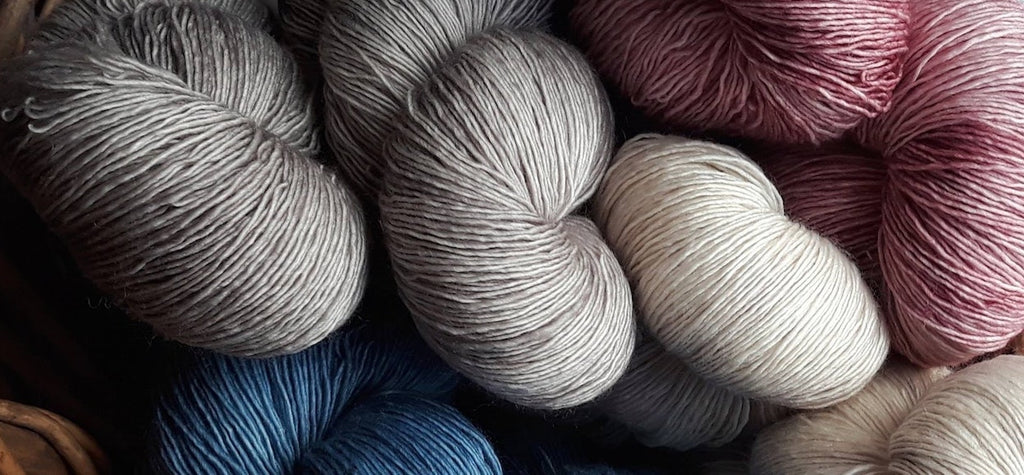
5. Organic wool is anti-allergenic
As organic wool is a natural material and produced with no harmful chemicals, it is incredibly good for allergy sufferers. It’s non-toxic, kind to skin and perfect for anyone who may react to even small concentrations of synthetic chemicals.
Even if you don’t suffer from chemical sensitivities, organic wool is perfect for anyone looking to live cleanly and do their bit for the environment. Its fibres are made from Keratin, the same protein in human hair. As a result, it is very rare to be allergic to organic wool.
6. Organic wool is biodegradable
Organic wool is 100% biodegradable. As it is not made with chemicals, it will not release microplastics or any toxic particles back into the soil.
7. Organic wool needs to be washed less often
Wool is naturally odour, stain and crease resistant. This means less washing is required, great for your energy bills, your wallet and importantly the environment.
Many man made fabrics trap bacteria produced from sweat. This is why synthetic fabrics can start to smell more quickly than some natural alternatives. As wool is natural, it should stay fresher for longer. Washing is an energy intensive process, which means fewer washes helps reduce the carbon footprint of the garment.
8. Organic wool can be recycled
It’s easy to recycle organic wool back into new fabrics or materials. Not only does this mean less waste, preventing clothing from being landfilled, it also helps reduce the footprint of fashion.
If all fabrics were recyclable, then fashion would require far fewer raw materials and use much less energy. This is the ultimate goal of sustainable fashion, to reach a closed loop system where all materials can be reused.
It’s no surprise then that wool is one of the most reused and recycled fabrics, with many slow fashion designers who focus on quality and longevity choosing to focus on it. Recycled wool is unsurprisingly one of the most sustainable fabrics we can wear today.
9. Organic wool is durable
Wool is an incredibly durable material and will last for many years. There is a reason wool has been used for thousands of years to make clothes.
The result? Wool clothes have a longer life than most other apparel fibres such as cotton. Wool keeps its shape for longer, so you don’t have to throw it away or get rid of it.
10. Wool is more likely donated to charity
As wool is incredibly durable, it is much more likely to be donated to charity for others to love again.
Wool represents only 1.3% of the global fibre supply, but wool garments are donated at a much higher rate of 5%. This demonstrates the long lifespan that wool garment offers.
11. Wool naturally fights mould and dust mites
An interesting one you might not have considered, but wool has properties that means it naturally resists mould and dust mites. There are tiny bristles in wool that stop dust mites from growing. Wool fabrics also wick moisture, an essential element for mites to thrive.
This moisture wicking also helps to prevent moulds, mildews and bad odours from forming. Your bedding or clothes stay moisture free and smell fresh for longer.
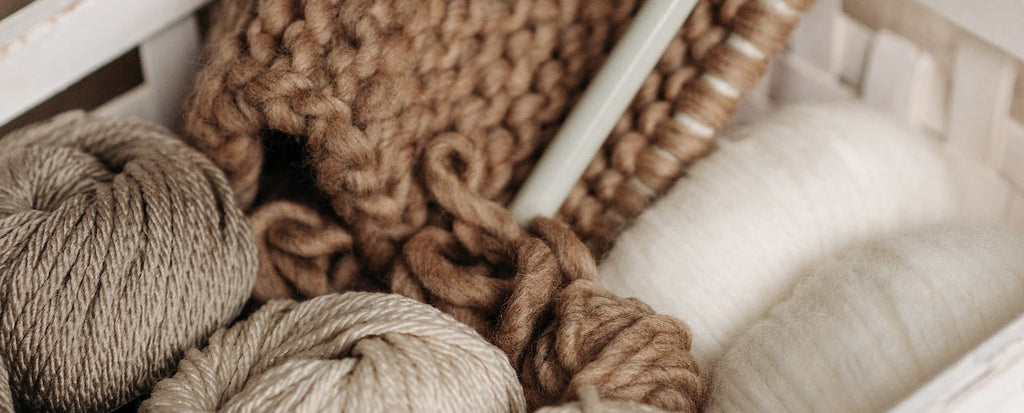
12. Wool is healthy to wear
Multiple studies have found proof that wool is healthy to wear or use in bedding. The key health benefits are improved sleep, better skin health and a strengthened immune system.
This is because wool is a natural fibre that is perfect for allergy sufferers. It wicks moisture from the skin quickly and effectively, whilst helping to regulate temperature. It also fights the build up of mould and dust mites.
13. Thermoregulation
The natural fibres within wool means it’s both breathable and able to insulate against cold weather. The microfibres are able to wick moisture from the body and release it into the air. This makes wool an ideal material for anything from bedding to thermal layers.
What’s more, when it gets cold wool is able to insulate you and keep you warm. Think of a sheep with its fluffy fleece, keeping it warm in the winter months. Most synthetic fibers are only good at insulating and not regulating, giving wool a natural edge.
14. Comfort and softness
Wool can be extremely soft and comfortable. It’s a myth that all wool is itchy, rough and too hot. Wool is combed into a fine fibre, creating a soft and delicate finish that makes it perfect for clothes. It’s this finish that is important and will determine how soft the fabric is.
15. Sheep provides an income for communities
We shouldn’t forget that many livelihoods rely on sheep for their incomes. Sheep are often raised on agricultural land that is poorly suited for other farming practices. They are the lifeline for many communities, without which they would be unable to provide their families with a basic income or meet a living wage.
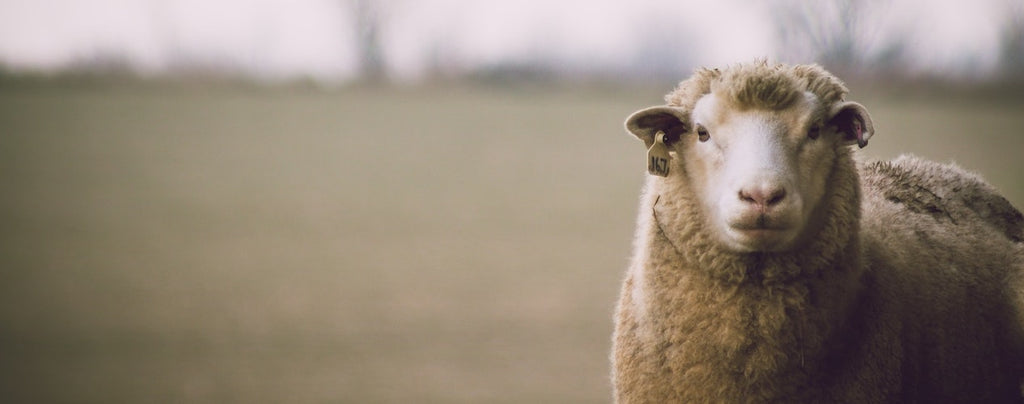
What are the disadvantages of wool?
As wool is a natural fibre, most people see it as a sustainable material. As with all things, it is never quite as simple as you expect. Conventional wool products are not vegan, and comes with the disadvantages of regular agriculture. This means methane emissions, and no promise of cruelty free treatment.
Here are the disadvantages of wool.
Farming can involve unethical practices
It’s always going to be the case that some farmers will cut corners and treat their livestock unethically. This could mean keeping sheep in cramped conditions, sheering them faster and cutting skin, or mulesing to prevent parasites.
There will always be bad players in every industry, and fortunately these unethical treatments are rare. To avoid them, opt for organic or recycled wool which ensures ethical wool production and humane treatment.
Wool is not vegan
It goes without saying that wool is not suitable for vegans. This is because animals are involved, and not everyone is happy to wear animal products.
Greenhouse gas emissions
Intensive farming has been shown to contribute to carbon emissions. Raising sheep for wool uses resources, and sheep like cows release methane.
With that said, sheep are often reared in areas that would be impossible to grow crops or other agricultural products, and provide livelihoods for communities which live in these areas.
Want to know more?
If you are left scratching your head with more questions, please do let us know by leaving a comment below. Your question may well be the topic of a future article.
If you would like to read more, these articles might be interesting:
- Tencel is an incredibly eco-friendly fabric. But what are the true advantages and disadvantages of Tencel?
- Wondering what’s better, wool or cotton? Here are the amazing facts about organic cotton
- 15 pros and cons about bamboo fabric
- Linen - an amazing eco friendly fabric that’s often overlooked
Leave a comment
Comments will be approved before showing up.
